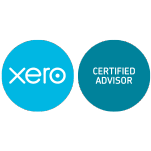Some of the items in Schedule 39 are:
- Carports (hired out to householders);
- Portable Huts;
- Cool-stores and freezing chambers;
- Slaughterhouses on farms;
- Plastic hothouse and PVC tunnel houses;
- Glasshouses;
- Buildings affected by acid;
- Milking sheds;
- Wintering barns and simple loafing barns;
- Temporary buildings
The IETC is a tax credit for individuals whose annual net income is between $24,000 and $48,000. Taxpayers are entitled to an IETC for any of the months during the period 1 April 2009 to 31 March 2010 if they:
- are a New Zealand tax resident;
- are not entitled to Working for Families Tax Credits (or received an overseas equivalent) – this includes their partner;
- didn’t receive an income-tested benefit;
- didn’t receive NZ Super or a veteran’s pension or a foreign pension or benefit, or an overseas equivalent of any of the above benefit.
If business is merely incidental to a holiday trip then airfares may not be deductible. There has to be a nexus between the trip and the production of income for business portion to be deductible. Where overseas travel to conferences, trade fairs etc relate to the business operations, then such travel is deductible. Often the taxpayer is accompanied by their spouse on such trips. If the spouse is assisting the taxpayer in presenting a paper or expected to attend the function, then usually the spouse’s travel expenses may also be deductible.
Purpose of the business trip? If the business trip is in relation to purchasing a capital asset e.g. a farmer may make a trip to buy a tractor, the travel cost must be capitalised to the fixed asset cost which is then subject to depreciation. Where such travel costs result in the failure to purchase a fixed asset, it is likely not to meet the nexus test for the income-earning process in which case it becomes black hole expenditure. However, if the travel is to gain knowledge of the market or to investigate expanding operations, then the travel cost may be deductible.


